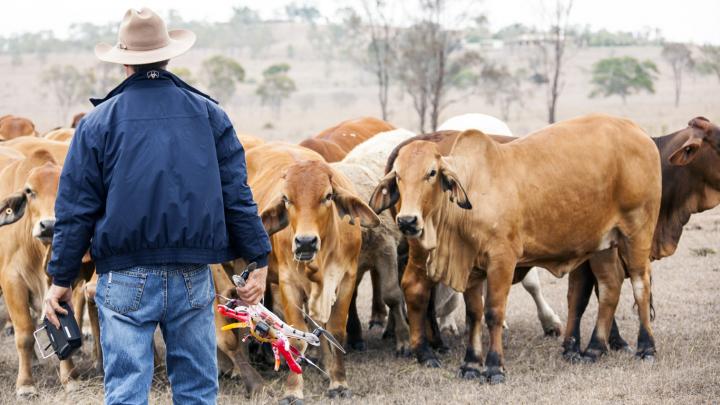RPA, also known as drones, come in all shapes and sizes. Some come as big as a Gulfstream 550 private jet while others will fit in the palm of your hand.
Many organisations and individuals use RPA for:
- firefighting
- search and rescue
- disaster relief
- border patrol
- weather monitoring
- hurricane tracking
- shark patrol
- law enforcement.
Today, many people also use RPAs for:
- aerial photography
- stock mustering
- a sophisticated 'toy' that's just fun to fly.
Users need to be aware that rules and guidelines for the operation of recreational drones are separate from those involved in commercial aerial work.
Learn more about the requirements of a Remote pilot licence.
Safety first
With the increase in RPA activity growing, safety is paramount. CASA works on making sure these flying machines integrate safely with existing aircraft and conventions.
This is CASA's priority as regulations and guidelines explain the safe and legal operation of RPA.
These guidelines include:
- how to become a safe RPA operator
- applying for an operator's certificate
- guidance material for aspiring operators
- information on flying recreational drones, flying commercially <2kg, flying commercially >2kg
- flying over your own land
- using drones in emergency situations.
Farmer using RPA for cattle mustering
Sharing the skies with drone and model aircraft operators
As licensed pilots of crewed aircraft, we naturally have every reason to be cautious sharing our airspace with uncrewed or remotely controlled aircraft.
This is especially the case when operators of recreational RPAs don't need a pilot's licence to operate.
Drones and model aircraft operators flying for fun have to observe some easy-to-follow rules.
CASA has been raising public awareness of drones by launching a campaign. CASA works with stakeholders to ensure they include information about the rules in the product's box or given to buyers. These stakeholders include:
- manufacturers
- retailers
- online electronics stores
- toy and hobby outlets selling the smaller recreational RPA.
CASA has no issues with a camera attached to recreational drones.
There may be privacy issues, but these are beyond CASA's jurisdiction. We do advise people to think about respecting privacy when flying their drone.
Read more about using drones.
Training
RPA training organisations teach an approved training syllabus. Organisations must also submit both instructor and student handbooks to CASA for approval.
In addition, the training organisation undertakes practical training based on guidance provided by CASA both within the syllabus and during entry control.


